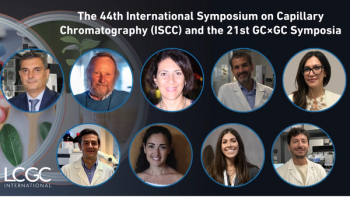
- The Column-03-20-2013
- Volume 0
- Issue 5
Agilent supports cancer research center
Dr Ronald A. DePinho ? president of the University of Texas MD Anderson Cancer Center (Texas, USA) ? has received an Agilent Thought Leader Award.
Dr Ronald A. DePinho — president of the University of Texas MD Anderson Cancer Center (Texas, USA) — has received an Agilent Thought Leader Award. Agilent Technologies (California, USA) will provide financial support for personnel as well as instrumentation for the center.
The work of DePinho has resulted in the development of improved cancer detection methods and cancer drug development. His research group focuses broadly on basic‑to‑translational research programmes for brain, colorectal, pancreas and prostate cancers, as well as ageing and neuro‑degeneration.
The award will support DePinho and his team in their research into reprogramming the metabolome at the initial stages of cancer. Specifically, the instrumentation will “enhance” the investigation of metabolic adaptions during the development of pancreatic cancer, according to Dr Guilio Draetta, director of the Institute for Applied Cancer Science.
Pancreatic cancer is a major concern of DePinho’s group because survival rates of patients have not significantly improved over the past two decades. Depinho said: “This technology will allow us to rapidly identify new targets that drive the formation, progression and maintenance of pancreatic cancer. Discoveries from this research will also lead to the development of effective early detection biomarkers and novel therapeutic interventions.”
Patrick Kaltenbach, Agilent VP and general manager of the Liquid Phase division, said: “We are proud to support Dr DePinho’s exciting translational research programme, which will make use of metabolomics and integrated biology workflows and solutions in biomarker discovery.”
Draetta added: “Armed with novel biomarkers, earlier diagnosis and treatment will be possible, leading to improved patient outcomes. Additional opportunities for novel therapeutic intervention will also emerge from this work.”
For more information please visit:
www.agilent.com
Articles in this issue
almost 13 years ago
Biomarker for river blindness discoveredalmost 13 years ago
Bruker expands Indian operationsalmost 13 years ago
A Testing Time...almost 13 years ago
GC-MS detects stress levelsNewsletter
Join the global community of analytical scientists who trust LCGC for insights on the latest techniques, trends, and expert solutions in chromatography.




